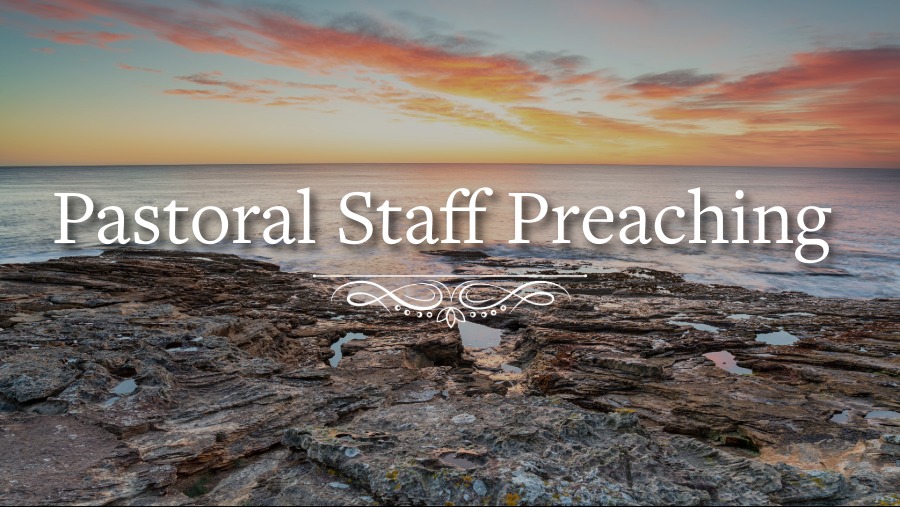
Turning Day One Into Done
The message centers on the reign of King Hezekiah in 2 Chronicles 29, drawing out lessons on repentance, sanctification, and practical change in the Christian life. The preacher emphasizes that transformation is not achieved merely by feeling regret or acknowledging sin but by acting upon conviction. Hezekiah serves as a biblical example of decisive leadership, taking immediate steps to restore worship and obedience in Judah after the idolatrous reign of his father, Ahaz.
Hezekiah’s Immediate Action
At just 25 years old, Hezekiah inherited a kingdom spiritually devastated by his father. Ahaz had shut the temple doors, extinguished the lamps, abandoned worship, and turned the people toward idolatry. Hezekiah, however, “hit the ground running.” In the first month of his reign, he reopened the temple doors, repaired them, and summoned the priests and Levites to consecrate themselves and cleanse God’s house.
This urgency highlights two themes:
- Repentance must move beyond regret. Feeling sorry without action only soothes the conscience but does not bring change. True repentance involves turning the heart and setting a new direction.
- Sanctification follows repentance. Hezekiah didn’t just mourn over Judah’s spiritual state; he led the people to actively remove defilement and set apart what belonged to God.
Obstacles to Change
The sermon identifies four reasons why believers often fail to apply necessary change:
- Closed Doors (Neglect of God’s Presence). Like Ahaz, people often shut the doors to spiritual practices that would bring healing—Bible reading, prayer, and church attendance. Change is hindered when access points to God’s presence are neglected.
- Extinguished Lamps (Loss of the Spirit’s Work). The extinguished temple lamps symbolize how believers quench the Spirit, losing the comfort, teaching, and reminders He provides. The preacher draws from John 14, noting the Holy Spirit brings comfort in trials, teaches truth, and recalls God’s promises—resources lost when we “snuff out” the Spirit’s work.
- Unclean Leadership (Failure in Responsibility). Leadership in the temple had grown careless. The sermon applies this to both the pulpit and the home. Pastors, parents, and spouses alike must lead with sanctified hearts. Strong leadership in the home is as critical as leadership in the church.
- Spiritual Slackness (Aimless Living). Hezekiah warned against negligence, using the image of a ship’s mast left slack, drifting whichever way the wind blows. James 1 describes the unstable “double-minded man” similarly. Many Christians lack backbone, conforming to surroundings rather than standing with purpose.
The Pathway to Real Change
Hezekiah’s reforms provide a framework for how believers can turn conviction into transformation:
- Repair the Doors. Reopen the ways to God—through prayer, the Word, and faithful church attendance. Stop neglecting access to His presence.
- Consecrate Yourself (Get Clean). Like an addict entering detox, believers must undergo the difficult process of cleansing. Spiritual change requires removing sin’s grip even when it feels painful.
- Remove the Filth. Sinful habits cannot simply be relocated or minimized; they must be eliminated. The preacher gives practical examples: discarding alcohol, cutting off access to pornography, changing media consumption, or confronting laziness. True sanctification requires decisive removal.
- Add God. It is not enough to remove sin; the void must be filled with God’s presence. As Hezekiah prepared the temple for cleansing, God was preparing to fill it with His glory. Similarly, when believers surrender, God fills them with His Spirit and power for holy living.
Repentance vs. Regret
A central point is that repentance without change is only regret. Regret makes us feel bad long enough to make ourselves feel better, but it accomplishes nothing. True repentance leads to sanctification—an ongoing separation from sin and devotion to God. Without this step, believers remain trapped in cycles of conviction and relapse.
The Role of the Holy Spirit
The preacher underscores the essential role of the Spirit in sustaining change. From John 14, the Spirit is:
- Comforter — steadying believers through trials.
- Teacher — giving wisdom and discernment.
- Reminder — bringing to memory God’s promises, His holiness, and even our “first love.”
When believers quench the Spirit, they forfeit the very power needed to live differently.
Final Exhortation
The sermon closes with a call to stop postponing change. Just as Hezekiah acted decisively on day one, believers must move from conviction to application—opening doors to God’s presence, cleansing their lives, removing sin, and adding God. Without these steps, change remains theoretical.
The preacher challenges the congregation: Do not simply think about change—move to change. Repentance must be lived out through sanctification, action, and the filling of God’s Spirit. Only then can believers experience the transformation God desires.
Central Message
True change begins with repentance but must move quickly to action. To “turn day one into done,” believers must stop closing doors to God, stop extinguishing the Spirit’s light, reject negligence, and embrace sanctification. Repentance without sanctification is only regret, but repentance lived out brings revival, restoration, and renewal.










.jpeg)











